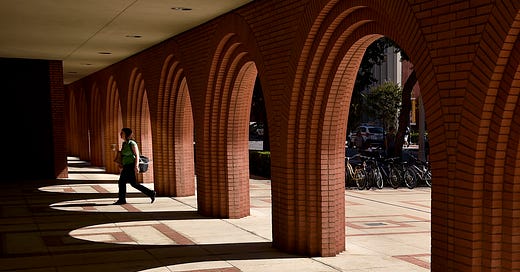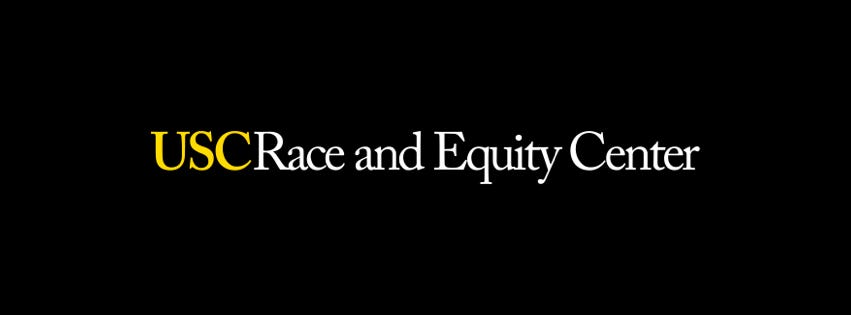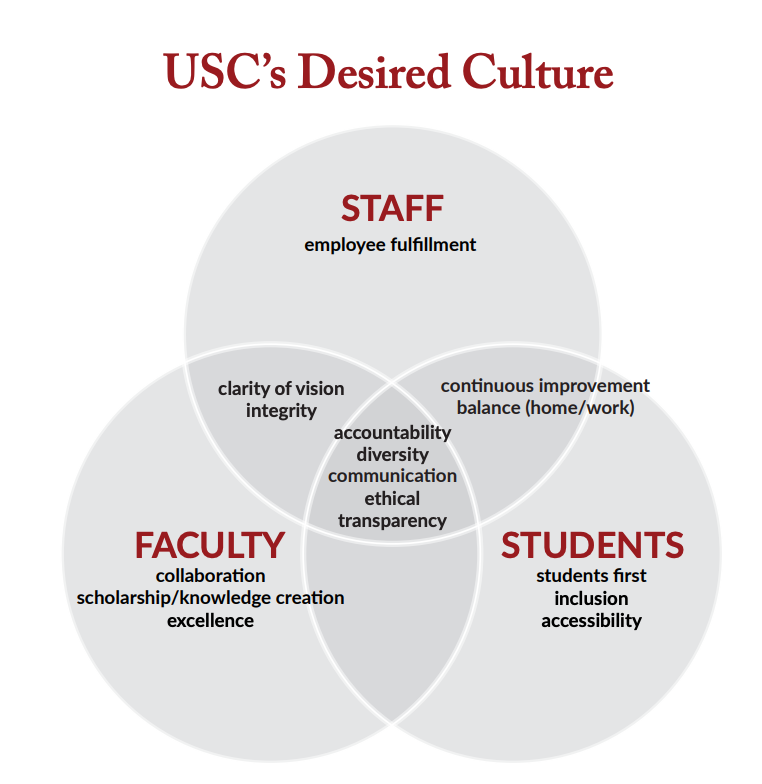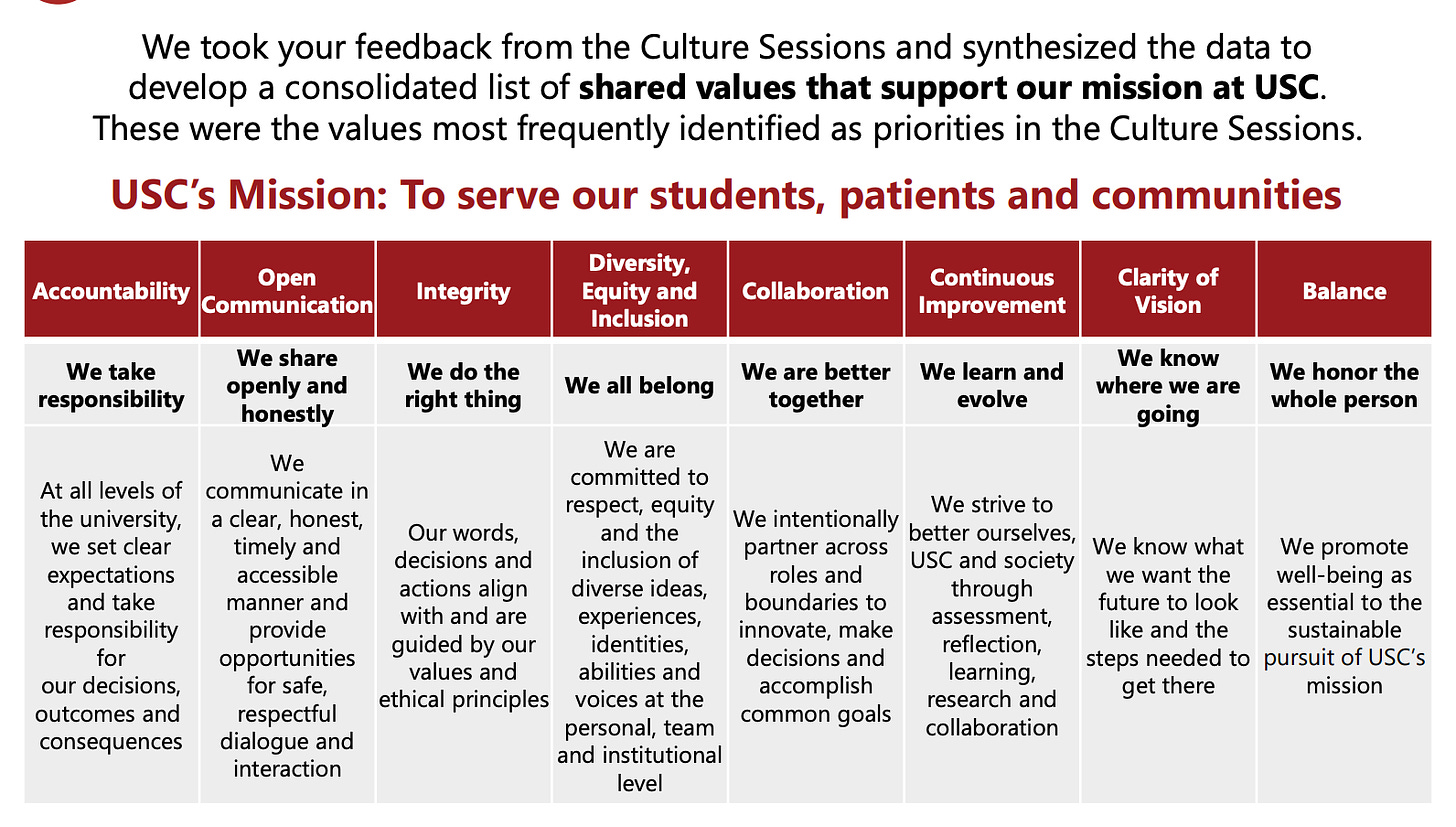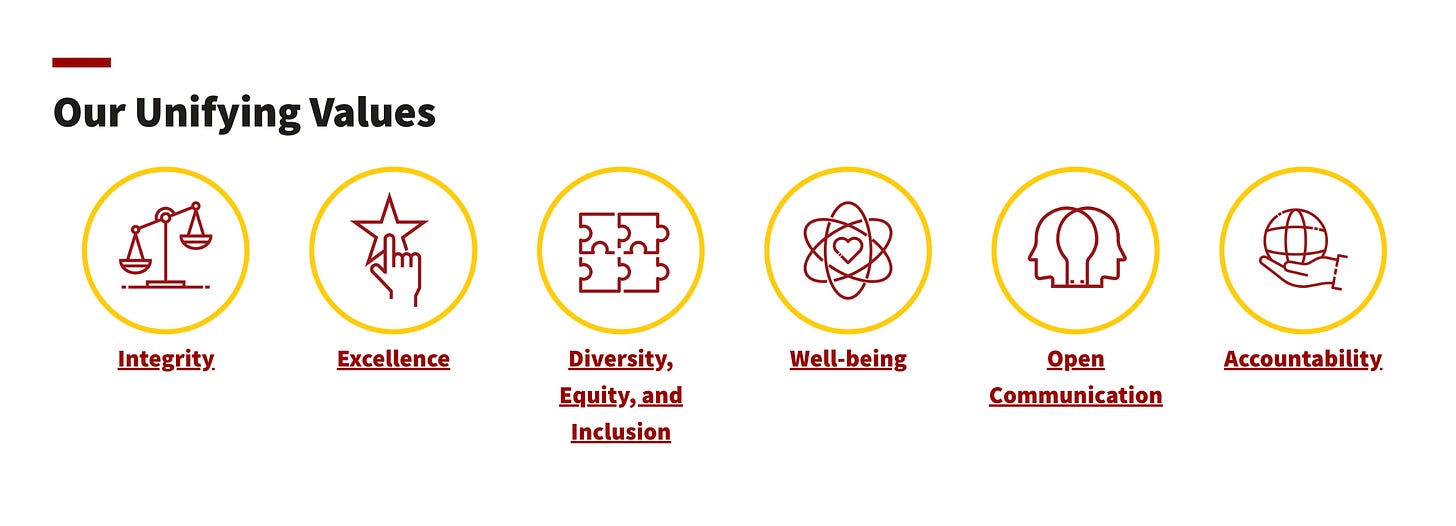Heterodox at USC Newsletter #11
Politicizing science undermines public trust; the DEI champion that wants to eliminate dissent; exploring our (not so) shared values.
If you have suggestions for things you’d like us to cover, feedback on our newsletter, or want to get more involved with Heterodox at USC please contact us at heterodox.usc@gmail.com.
Politicizing Science Funding Undermines Public Trust in Science
A new paper co-authored by Anna Krylov, USC Associates Chair in Natural Sciences, Professor of Chemistry and a Heterodox at USC member, argues that changing the criteria for scientific funding to advance DEI is only worsening the public’s trust in science. It’s also jeopardizing the advance of scientific discovery. Read her latest op-ed on this topic in the Chronicle of Higher Education:
Introducing DEI plans into the evaluation of scientific proposals dilutes the criterion of intellectual merit, creating fertile ground for corruption and perverse outcomes.
In the competition for funding, which proposal should the DOE fund — the one demonstrating the most promise to advance solar-energy research or the one promising to involve more female students? Should the NIH fund the best ideas in cancer research or the best plans for achieving higher representation of LGBTQ+ researchers?
We know from the history of totalitarian regimes that when science is subjugated to ideology, science suffers. And the current approach to linking DEI considerations to funding decisions weakens achievement- and merit-based criteria in science funding, which means that money paid by hardworking taxpayers is not being used to support the best scientific projects.
Shaun Harper Has a Plan to Save DEI. It Includes Eradicating Dissenters
One of USC’s most outspoken proponents of DEI is Professor Shaun Harper, who runs the USC Race and Equity Center. He was featured in a recent Chronicle of Higher Education article titled “Can Shaun Harper Save DEI?”.
James Moore, Professor Emeritus of Industrial and Systems Engineering at USC Viterbi and a Heterodox at USC member, digs a little into Harper’s various ideas. In his article for The Campus Fix, he finds a some common ground but also notes several potentially disturbing calls to action.
Harper advocates for discontinuing standardized entrance exams. This idea has already been tried and abandoned by numerous institutions, partly because eliminating them may actually worsen admission opportunities for underrepresented groups.
Harper also calls for addressing the “mindsets that undermine student and faculty diversity,” such as the hypothetical “faculty member who don’t want no black people on the faculty in the department, or who doesn’t want black students or Indigenous students or who believes that all of those students are unqualified or, you know, otherwise deficit.”
Moore responds:
In 36 years as a faculty member at Northwestern and mostly USC, I encountered only a single, overtly sexist faculty colleague who thought women had no business in his discipline (engineering). Still, in due course, he figured out how the world is organized and adjusted his thinking and actions. I have never had any other colleague express that they wanted to exclude anyone from joining USC based on group identity. Anything anyone has said about the relevance of race or gender in hiring or admissions decisions always supports the prospect of connecting our fields to members of underrepresented groups whenever feasible.
It is unclear to me whose mindsets Prof. Harper wants to “trouble, and ultimately correct, and eradicate.” However, I cannot help but suspect that he means anyone who disagrees with his position concerning the importance of race.
Long Day’s (Culture) Journey Into Night
The university has released a report with findings from their recent survey about our Culture Journey. This was originally launched to improve the general university culture in the wake of a number of high-profile scandals. In January, the university sent out a survey to gather feedback on how well we’ve been living up to the “unifying values” decided upon back in 2022.
Note: the survey was completed by less than 25% of the university’s staff, faculty, undergraduates and graduate students. Although not a terrible turnout, it’s important to recognize that this survey does not represent the opinions of over 75% of our community members.
A few high notes:
82% of the university overall are proud to be a member of USC.
92% of undergraduate and graduate students agree that their instructors practice academic integrity.
89% of faculty agree that their peers practice academic integrity.
Of concern:
Faculty are the least likely to agree that they can raise concerns without fear of retaliation.
Faculty are the least likely to agree that they can speak up, even with bad news.
Less than 60% of respondents strongly agreed or agreed that USC was living up to its shared value of general accountability.
We have a few concerns about this project. Although the six “unifying values” are promoted as arising collectively from the Trojan community, several appear to be quietly engineered into existence by either the administration or by Ethics and Compliance Initiative, the consulting group paid to implement this project.
In the original survey, which asked for respondents to identify what they wanted in the university’s ideal culture, all three stakeholders agreed that “diversity” was a desired value. Yet, “equity” doesn’t appear at all and “inclusion” only appears in the top ten for students.
However, conveniently, the “i” and “e” of DEI suddenly appeared in a list of shared values and in the finalized unifying values, after the consultants had “synthesized” the data. Curious!
But, what exactly does “equity” and “inclusion” mean in a school with an acceptance rate of 12%? The first step towards “inclusion” at USC is via a process of extreme exclusion! “Excellence”, another of our shared values, frequently requires rejection and selectiveness.
Evaluating the effectiveness of the (not) shared values of “Diversity, Equity and Inclusion” is also, frankly, impossible in this survey.
Suppose you don’t feel that DEI is a “value” you agree with, not because you’re opposed abstractly to “diversity”, but because you have concerns about the (well-documented) ineffectiveness of the DEI industrial complex. Or, suppose you don’t feel you belong at USC (some 12% of respondents say they don’t). Yet, as a conservative or as someone who would like bathrooms open only to your sex, you feel that DEI programs are only exacerbating your sense of outsiderness.
Any answer you give would simply further entrench DEI. Saying you thought the university was doing poorly on this matter would encourage them to launch more mandatory trainings and workshops. Responding that you thought they were doing things well, in the sense that DEI is everywhere already and you don’t want more, would mean they’d keep doing precisely what they are already doing.
Here’s two suggestions: the university could much more honestly reflect the ethos of the community by simply centering “diversity” instead of DEI. And, the university could add “pursuit of truth” to the top of our list of values, something which any academic institution should already be prioritizing above everything else.
Interesting Research and Uplifting News from USC
65 past, current & incoming Trojans will compete in the Paris Olympics
USC team develops at-home test for lithium toxicity
Alumni garner Emmy nominations
Keck Medical Center among nation’s best in 2024-2025 rankings
USC Student Films Win at Cannes
News Beyond USC
Sign UCLA Alumni Petition in support of Institutional Neutrality
Bruin Alumni in Defense of Free Speech is sending a letter to UCLA, requesting that the university adopt institutional neutrality. If you are an alum (or otherwise affiliated with UCLA) and would like to sign the petition, please email jlmosley716@gmail.com or bruinfreespeech@gmail.com with your name and class year (or affiliation.) Feel free to forward this information to any other UCLA alumni you know of.
Republicans, Independents, and unaffiliated students more reluctant to discuss Israeli-Palestinian conflict than Democrats;
Students with more extreme ideological orientation more open to discussing Israeli-Palestinian conflict than moderates.
The barometer survey results further reveal that 76% of U.S.-based scholars of the Middle East have felt a greater direct or indirect need to self-censor since the start of the war. And 69% reported self-censoring on topics involving the Israeli-Palestinian conflict.
Our newsletter wants to cover any campus issues related to academic freedom and free speech issues of all types, so please send tips or concerns to heterodox.usc@gmail.com.

